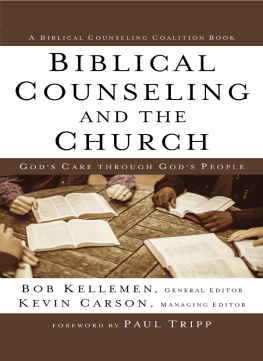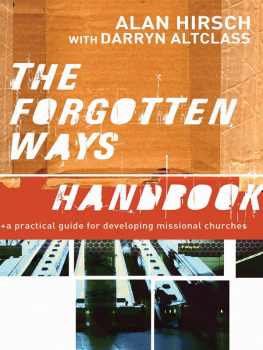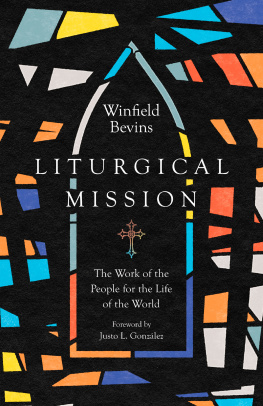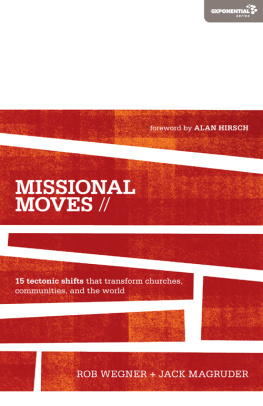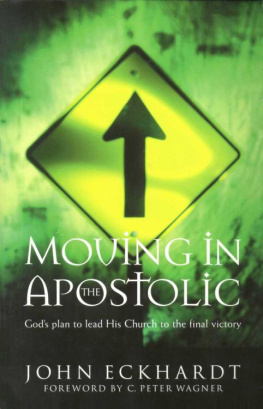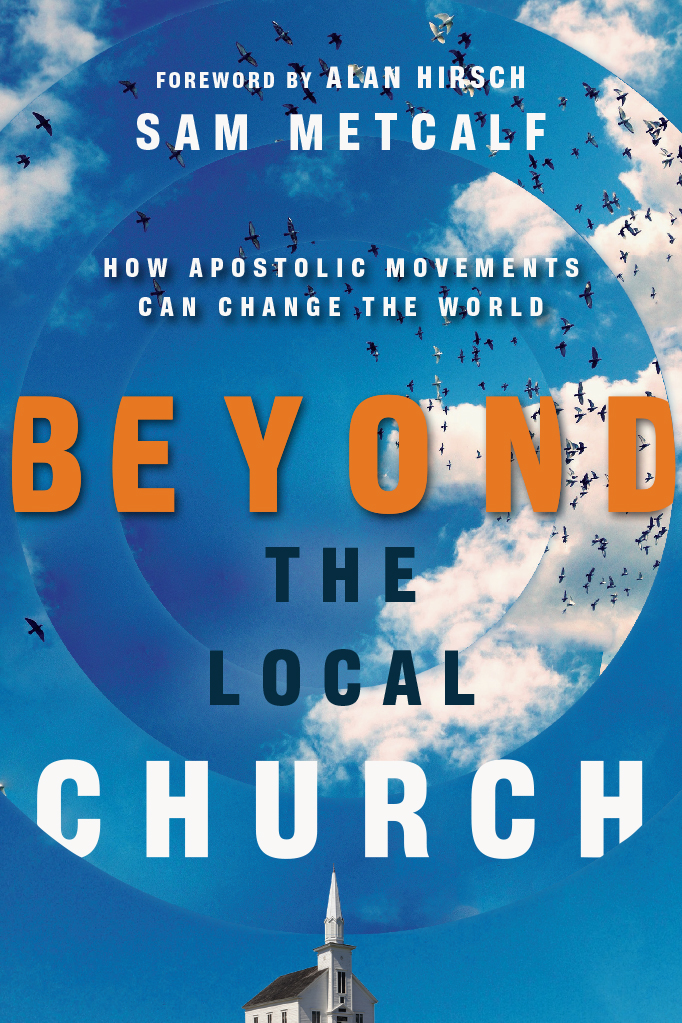SAM METCALF
FOREWORD BY ALAN HIRSCH

www.IVPress.com/books
InterVarsity Press
P.O. Box 1400,
Downers Grove, IL 60515-1426
ivpress.com
2015 by Sam Metcalf
All rights reserved. No part of this book may be reproduced in any form without written permission from InterVarsity Press.
InterVarsity Press is the book-publishing division of InterVarsity Christian Fellowship/USA, a movement of students and faculty active on campus at hundreds of universities, colleges and schools of nursing in the United States of America, and a member movement of the International Fellowship of Evangelical Students. For information about local and regional activities, visit intervarsity.org.
All Scripture quotations, unless otherwise indicated, are taken from THE HOLY BIBLE, NEW INTERNATIONAL VERSION, NIV Copyright 1973, 1978, 1984, 2011 by Biblica, Inc. Used by permission. All rights reserved worldwide.
While any stories in this book are true, some names and identifying information may have been changed to protect the privacy of individuals.
The poem on pp. 149-50 is In Celebration of Missionaries from Psalms of My Life by Joseph Bayly. Used by permission of the Bayly family.
Figure 5.2 on p. 111 and excerpts from Alan Hirsch and Tim Catchim, The Permanent Revolution: Apostolic Imagination and Practice for the 21st Century Church (San Francisco: Jossey-Bass, 2012) are reproduced with permission of John Wiley & Sons, Inc.
Excerpts from C. Peter Wagner, The Book of Acts: A Commentary (Bloomington, MN: Chosen Books, 2014) are used by permission of Chosen Books, a division of Baker Publishing Group.
Published in association with the literary agency of WordServe Literary Group, Ltd., www.wordserveliterary.com.
Cover design: David Fassett
Images: birds in flight: EyeEm/Getty Images
little white church: sumnersgraphicsinc/iStockphoto
ISBN 978-0-8308-9889-3 (digital)
ISBN 978-0-8308-4436-4 (print)
Library of Congress Cataloging-in-Publication Data
Metcalf, Sam, 1952
Beyond the local church : how apostolic movements can change the world / Sam Metcalf.
1 online resource.
Includes bibliographical references.
Description based on print version record and CIP data provided by publisher; resource not viewed.
ISBN 978-0-8308-9889-3 (eBook) -- ISBN 978-0-8308-4436-4 (pbk. : alk. paper)
1. Christianity--Societies, etc. 2. Church. I. Title.
BR21
267--dc23
2015027770
To all those throughout CRM
my friends and fellow apostolic adventurers
as weve journeyed together. Its been extraordinary.
Thank you for the ride!
Contents
Foreword
by Alan Hirsch
The great Christian revolutions come not by the discovery of something that was not known before. They happen when someone takes radically something that was always there.
H. Richard Niebuhr
O ne of the more stimulating books I have read in recent years was The Age of the Unthinkable by Joshua Cooper Ramo. The unthinkable in Ramos view is akin to a kind of future/culture shock we experience in problematic encounters of the twenty-first century as we enter into previously uncharted waters. This is largely due to massive economic, political, environmental and social factors as they shift. Our age is highly unstable and at the edge of seismic cultural change. And yet we are entering into this revolutionary age armed with a mindset formed and suited for centuries past. The central warning of Ramos book highlights how and why an obsolete picture of the world only serves to exacerbate, not resolve, the serious global problems we face.
As a global missionary leader, Sam Metcalf knows this. He senses that we are ill prepared for the paradigmatic challenges of the oncoming century. But in order to propose a way forward, Sam knows that he has to expose the reductionist ecclesiology implied in the inherited Western understandings of the church. He aims squarely at the reduction of Jesus ecclesia to the merely local and of its leadership to the merely pastoral. He is spot on here.
The divorce of the local church from the missionary church is a systemic disaster to be sure. At the very roots of the twentieth century, Roland Allen, the remarkable missionary to China, predicted that with the birth of the so-called parachurch and the missionary societies that we would end up with a mission-less church and a church-less mission. This rupture on the NT ecclesiology introduced an element of deep dysfunction into both the local church and the resultant parachurches and undercut the possibility of movements occurring.
I have long believed that if we understand ecclesia properly and begin to reappropriate its various levels of meaning, then many of the problems we now face can be resolved. For instance, our more concrete, over-localized, fairly institutionalized paradigm of church must be redefined in the much broader, more fluid meaning used in the Bible.
The confining of the church to the simply local has had disastrous consequences for our capacity to imagine the church as a transformative movement that can reach across vast geographic regions and penetrate numerous cultures. The local church as we know it can barely reach past its own internal programming, let alone transform whole cultures and societies. And yet I believe that is what the church is designed by Jesus to do. We have to expand our understanding of the church to that of a burgeoning apostolic movement, not reduce it to a one-dimensional religious institution. This is the church that is equal to the challenge of the twenty-first century.
Drawing on Ralph Winters categories, the best thinking of missional leadership and years of experience, Sam develops a coherent and strategically useful typology of missional leadership along with the associated missional organization.
But in Beyond the Local Church Sam doesnt just suggest new ways of organizing. He also highlights the importance of expanding our also severely diminished understanding of ministry beyond that of the shepherd and teacher to include the generative ministries of the apostle (missional), prophet and evangelist envisaged in Ephesians 4:1-16 (APEST).
I have always felt the urgency and sheer strategic value of this neglected aspect of biblical ecclesiology and have written about it in almost every book I have published. Most recently, and in the most consistent and thorough form, I have written about it with Tim Catchim in The Permanent Revolution. I am completely convinced we need to first and foremost reconceive the church as a missional, or better, apostolic, movement. Once we embrace this more biblical paradigm of church, we will then begin to think and act like the movement we are designed to be. But if we are to re-embrace the movement form (and I can see no viable plan B for the church in the West) then we are going to have to likewise re-embrace the very forms of ministry that can generate, sustain and develop missional movements. And we can do no better than recover the world changing dynamics latent in the APEST typology. Sam has added to the needed dialogue by adding his leadership experience and intellectual heft to the conversation. I, for one, am grateful.


